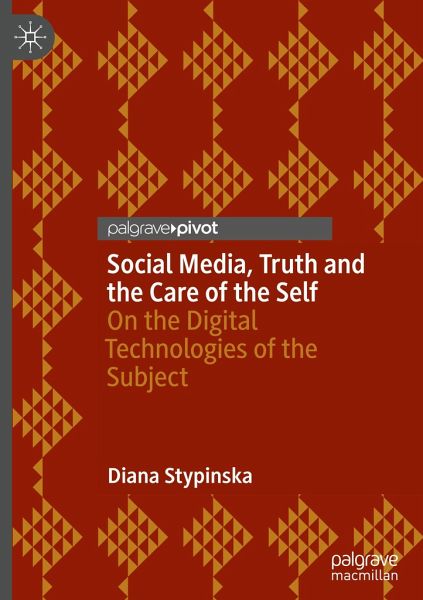
Social Media, Truth and the Care of the Self
On the Digital Technologies of the Subject

PAYBACK Punkte
17 °P sammeln!
This book explores the relationship between (post)truth and subjectivity by focusing on social media as a site of digital subjectification. These days, truth is cheap. Anyone can claim it. Indeed, most do - impudently and without any recourse to facts or objective reality. Truth-claims today are nothing but power grabs, employed in the permanent popularity contest that our culture and politics have become. Correspondingly, our very sense of reality is perpetually uprooted. Post-truth sets us adrift. Navigating by smartphones, we pursue endless mirages, coming to wonder whether the shoreline it...
This book explores the relationship between (post)truth and subjectivity by focusing on social media as a site of digital subjectification. These days, truth is cheap. Anyone can claim it. Indeed, most do - impudently and without any recourse to facts or objective reality. Truth-claims today are nothing but power grabs, employed in the permanent popularity contest that our culture and politics have become. Correspondingly, our very sense of reality is perpetually uprooted. Post-truth sets us adrift. Navigating by smartphones, we pursue endless mirages, coming to wonder whether the shoreline itself is a myth.
The book examines the ways in which different digital practices - such as influencing, trolling and digital activism - operate as technologies of the subject, shaping how we relate to ourselves, others and the world. It argues that social media facilitates the progressive eclipsing of our subjective (dis)positions by the economic imperative. Positioning post-truth as the outcome of unbridled economicization, it exposes the true costs of its supremacy. The critical reflections on the relationship between digital subjectification and the social offered by this book will be of relevance to academics and students working in the fields of sociology, media and cultural studies, politics, and philosophy.
The book examines the ways in which different digital practices - such as influencing, trolling and digital activism - operate as technologies of the subject, shaping how we relate to ourselves, others and the world. It argues that social media facilitates the progressive eclipsing of our subjective (dis)positions by the economic imperative. Positioning post-truth as the outcome of unbridled economicization, it exposes the true costs of its supremacy. The critical reflections on the relationship between digital subjectification and the social offered by this book will be of relevance to academics and students working in the fields of sociology, media and cultural studies, politics, and philosophy.












